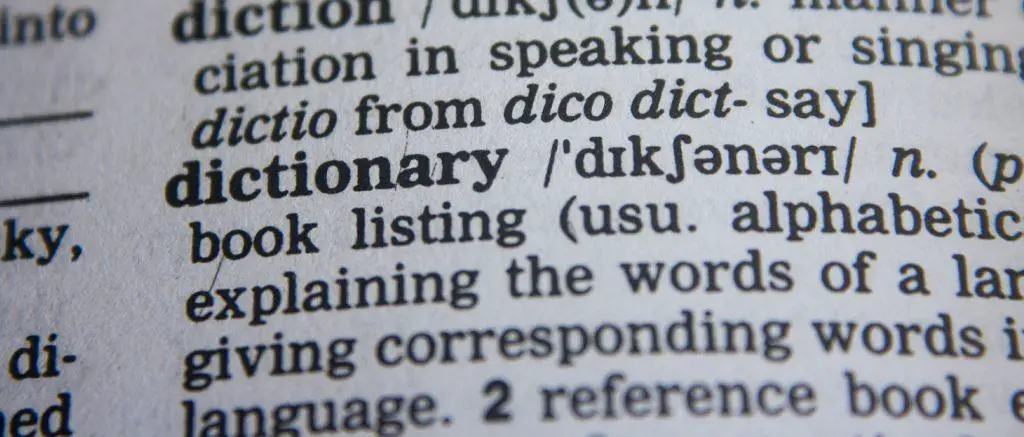Business English Meetings: Introduction
 Business English meetings are an essential part of modern-day business.
Business English meetings are an essential part of modern-day business.
They provide an opportunity for individuals from different backgrounds and cultures to come together and discuss various topics. The agenda of these meetings can range from discussing new business ideas to updating colleagues on the progress of a project.
Business meetings are essential for making decisions, collaborating, and building relationships. However, participating in a business meeting requires proper preparation and communication skills.
For non-native English speakers, participating in a business meeting can be challenging. They may struggle with the language, cultural differences and the pace of the meeting.
This article will explore the best practices for conducting business meetings in English and how to communicate effectively in these meetings.
Pre-Meeting Preparation
Preparing for business English meetings is essential for its success. The following are some tips for pre-meeting preparation:
1. Agenda Preparation
The agenda sets the tone for the meeting. It should be clear, concise, and have specific objectives.
The agenda should be distributed to all participants before the meeting, giving them enough time to prepare.
2. Time Management
Time management is crucial for a successful business meeting. The meeting should start and end on time.
All participants should be informed of the start and end time of the meeting. It is important to allocate enough time for each agenda item and to stick to the schedule.
3. Technology Check
Before the meeting, it is important to ensure that all technology equipment is working properly. This includes projectors, microphones and video conferencing equipment.
Any technical issues should be resolved before the meeting.
4. Language Preparation
For non-native English speakers, it is important to prepare for the meeting by reviewing vocabulary, grammar and pronunciation.
It may be helpful to practice with a language partner or attend language classes.
Communication Skills
Effective communication is essential for a successful business meeting. The following are some tips for effective communication:
1. Active Listening
Active listening is crucial in a business meeting. Participants should listen attentively to the speaker and ask questions to clarify any confusion.
It is important to avoid interrupting the speaker or engaging in side conversations.
2. Body Language
Body language plays a significant role in communication. Participants should maintain eye contact with the speaker and have an open posture.
They should avoid crossing their arms or legs, which can convey a defensive attitude.
3. Eye Contact
Maintaining eye contact with the speaker shows interest and respect. It also helps to establish a connection between the participants.
Don’t concentrate on one person but rather look at a different person every few seconds. This keeps everyone involved and you don’t stare in a creepy way.
4. Speaking Clearly
Speaking clearly and slowly helps non-native English speakers to understand the discussion.
Participants should avoid using idioms, slang, or jargon that may be unfamiliar to others.
5. Using Appropriate Language
Using appropriate language is essential in a business meeting. Participants should avoid using offensive language, slang, or derogatory remarks.
They should also avoid interrupting others or talking over them.
If you want to find out more about the language used during business English meetings, please check out this Udemy course.
Presentation Skills
 Presentations are an integral part of business English meetings. The following are some tips for effective presentations:
Presentations are an integral part of business English meetings. The following are some tips for effective presentations:
1. Planning a Presentation
Planning is essential for an effective presentation. The presenter should have a clear objective and structure for the presentation.
They should also consider the audience’s background and interests.
2. Creating Visual Aids
Visual aids can help to convey information more effectively. The presenter should use clear and concise visuals that support the presentation.
They should also avoid using too much text on slides and use visuals that are easy to understand.
3. Engaging the Audience
Engaging the audience is essential for an effective presentation. The presenter should use a variety of techniques such as asking questions, using anecdotes and providing examples.
They should also be prepared to answer questions from the audience.
4. Handling Questions
Handling questions effectively is crucial in a business meeting. The presenter should be prepared to answer questions and provide additional information if needed.
They should also be open to feedback and suggestions.
Meeting Etiquette
The way participants conduct themselves in a business meeting is important. The following are some tips for meeting etiquette:
1. Dress Code
Participants should dress appropriately for a business meeting. They should avoid wearing casual attire or clothing that is too revealing.
2. Punctuality
Punctuality is important in a business meeting. Participants should arrive on time and avoid being late.
For most European and American meetings, on time is five minutes before the meeting starts.
For many Asian audiences, a lack of punctuality is considered to be rude and insulting.
3. Introductions
Introductions are essential in a business meeting. Participants should introduce themselves and their role in the meeting.
4. Handshakes
Handshakes are a common way of greeting in a business meeting. Participants should offer a firm handshake and maintain eye contact.
In many Asian cultures, an overly firm handshake is seen as a sign of aggression, so adjust the firmness here.
Follow-Up
After the meeting, it is important to follow up with the attendees. The following are some tips for follow-up:
1. Recap of the Meeting
A recap of the meeting should be sent to all participants, highlighting the key points and decisions made during the meeting.
This can be done via email or a shared document.
2. Action Items
Action items should be assigned to specific participants with clear deadlines and responsibilities.
This ensures that the decisions made during the meeting are implemented effectively.
3. Thank You Notes
Sending thank you notes to the attendees is a professional way of showing appreciation for their time and input.
This can help to establish stronger business relationships.
More about the Language of Meetings
If you want to know more about the language used in business English meetings, you will certainly find my Udemy course (Business English – the Language of Meetings) very interesting.
It goes into a lot more detail about the language used at various stages of the meeting, specifically:
- before the meeting,
- starting the meeting,
- during the meeting,
- after the meeting.
In each section, there is a breakdown of the activities, with examples.
Conclusion
Effective communication, presentation skills and meeting etiquette are essential for a successful business meeting.
Preparation, active listening, clear communication and follow-up are key components of a productive meeting.
By following these tips, participants can ensure that their meetings are efficient, productive and respectful.
FAQs
Q: What should I do if I am unable to attend a business meeting?
A: If you are unable to attend a business meeting, inform the organizer as soon as possible and provide a valid reason for your absence. You may also suggest a delegate to attend on your behalf.
Q: How can I improve my language skills for a business meeting?
A: To improve your language skills for a business meeting, you can practice with a language partner, attend language classes or review vocabulary, grammar and pronunciation on your own.
Q: What should I wear to a business meeting?
A: Participants should dress appropriately for business English meetings. Business attire is recommended, which includes a suit or smart trousers and a business shirt.
Q: How can I engage the audience during a presentation?
A: To engage the audience during a presentation, use a variety of techniques such as asking questions, using anecdotes and providing examples. Be prepared to answer questions and provide additional information if needed.
Q: Why is follow-up important after a business meeting?
A: Follow-up is important after a business meeting to ensure that the decisions made during the meeting are implemented effectively. It also helps to establish stronger business relationships and shows appreciation for the attendees’ time and input.
Q: Where can I find out more about the language of meetings?
A: Check out this useful and interesting Udemy course called “Business English – the Language of Meetings“


